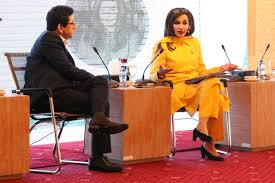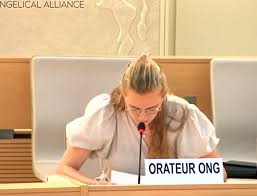Five years till Pakistan is water scarce: Sherry Rehman

Islamabad: “Pakistan will have absolute water scarcity by 2025, which will hit women and other marginalized groups disproportionately hard. Mainstream policy agendas frequently overlook crucial statistics, and fail to create responsive mechanisms, like not convening the Climate Change Council,” stated Senator Sherry Rehman at Jinnah Institute’s event on Democracy and Inclusion.
“From being the 7th most vulnerable country to climate change, Pakistan has climbed ranks to the 5th most vulnerable. At least 60 percent of Pakistanis suffer from food insecurity and if the dangerous nexus of poverty, climate stress, and the demographic boom is not addressed Pakistan will surely fall into a prolonged destitution trap, Senator Rehman emphasized. More concerted efforts at an institutional level are needed, she said, lauding civil society organizations for their activism, and ability to galvanize governmental and donor support.
Countries face a serious crisis when their population and growth rate curves collide, a fate soon to befall Pakistan if its population growth becomes equivalent to its economic growth. “Pakistan is one of the few countries proving Malthus correct in this respect,” she stated. Pakistan must review the efforts of countries in the region, particularly Bangladesh, and learn how the country has checked its burgeoning population.
Other speakers at the event discussed the value of programming inclusion into democracy practice. While important strides have been made through institutional reform and legislative action, including a host of interventions taken by the Election Commission of Pakistan, and NADRA to facilitate women and marginalized groups casting their votes, participants stated that these were modest steps and much more needed to be done.
Some speakers felt that this was the basic minimum that democracies should deliver for their citizens, and reporting numbers did not enable meaningful inclusion.
Participants spoke about longer term historical trajectories that have compounded democratic deficits, and prevented citizens from having a full measure of their rights. The colonial legacy turned citizens into subjects, and convincing the state otherwise has been extremely challenging. Participants saw that the state has undertaken systemic exclusion against certain groups, and its security imperatives sustain such exclusions.
The democratic agenda is therefore a hard sell with the state, as much as society, where women remain at the fringes of executive authority, decision making, financial independence and self expression. They expressed that inclusion need not be a demand from parliaments and politicians alone, as institutions and procedures outside the political realm is deeply exclusionary and revealed socially entrenched attitudes that no democracy program can influence.
Jinnah Institute held the event in conjunction with DAI-Tabeer, a UK-Aid funded programme aimedat strengthening democratic practices in Pakistan by supporting institutions like ECP, Parliament and political parties to be more capable, accountable and responsive.





